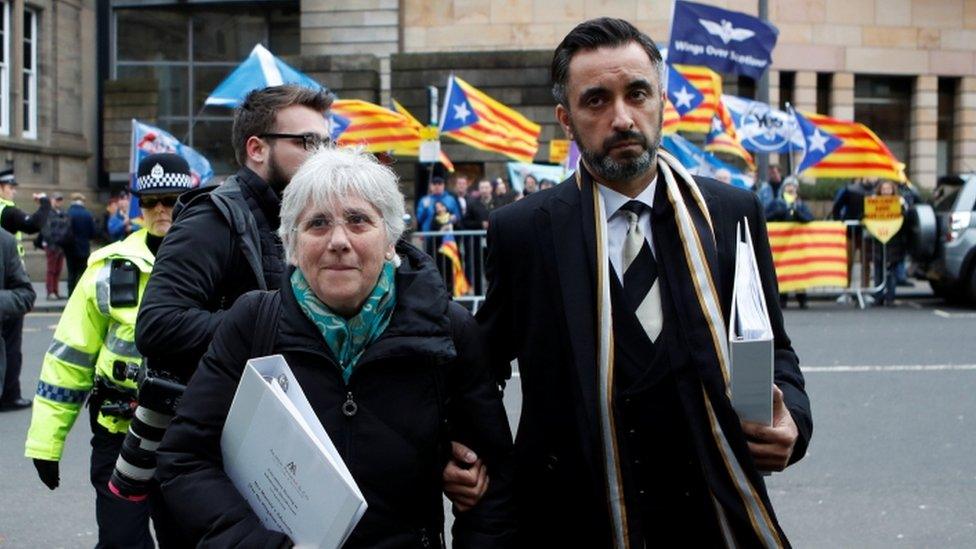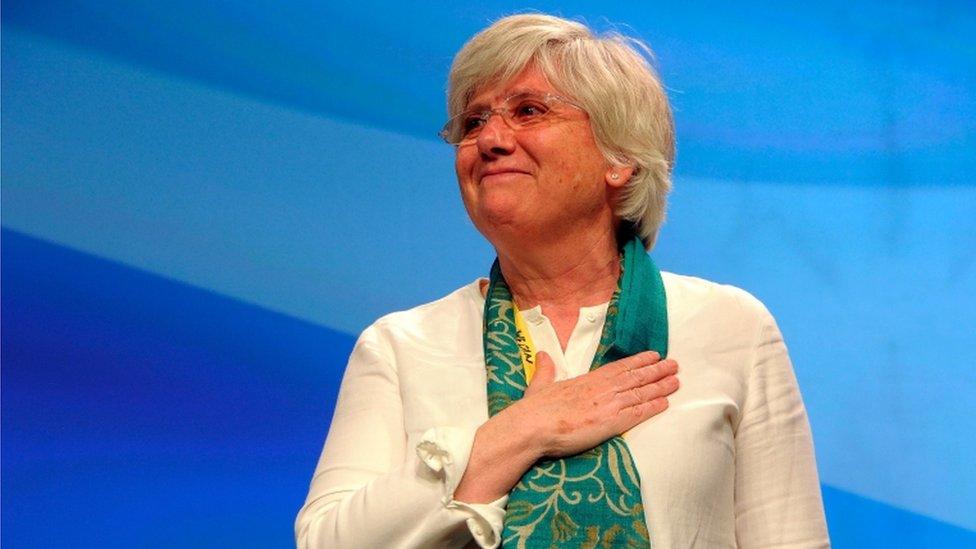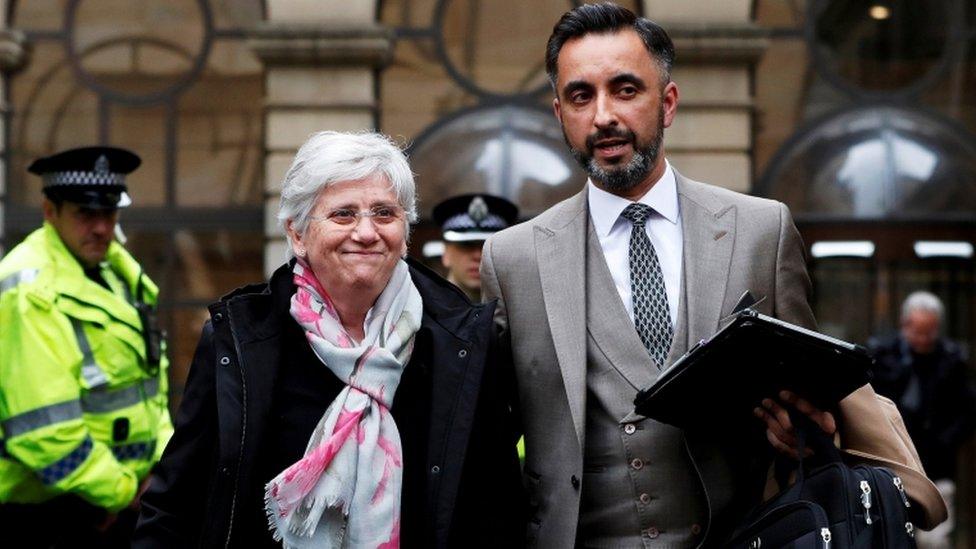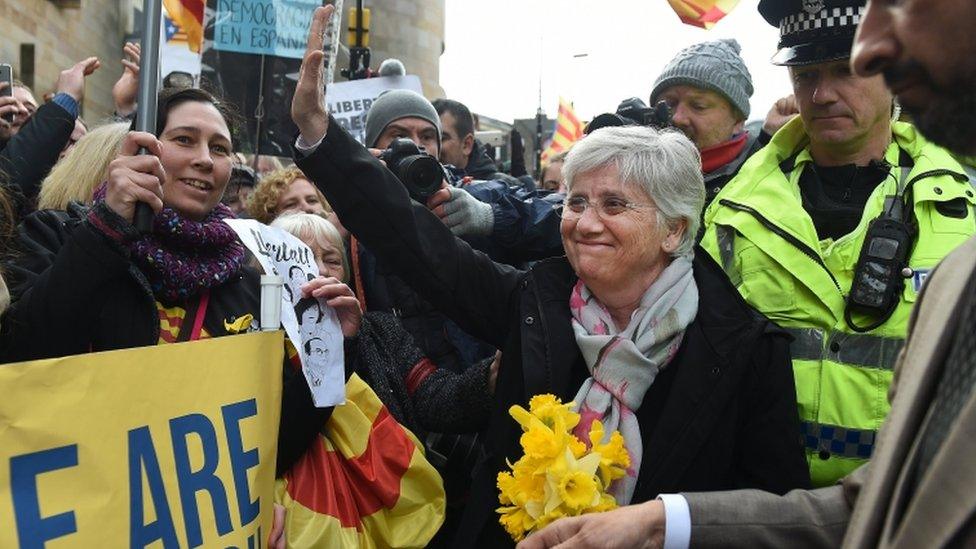Ancient treason law to be used in Clara Ponsati extradition case
- Published

Clara Ponsati teaches at St Andrews University
Scottish prosecutors have confirmed they plan to use the centuries-old law of treason to try to send a former Catalan minister back to Spain.
Clara Ponsatí is wanted in Spain on charges of rebellion over the disputed independence referendum in 2017.
The St Andrews University professor denies the charges against her.
She can only be extradited if a Scottish court decides that the offences she is accused of would constitute crimes in Scotland.
This means the Crown, acting on behalf of the Spanish authorities, has had to identify offences in Scots law that correspond to those Spanish offences which Prof Ponsatí is accused of - which include rebellion and the misuse of public funds.
Arcane language
In a preliminary hearing at Edinburgh Sheriff Court, Scottish prosecutors confirmed that the Treason Felony Act of 1848 would be used to facilitate the extradition, specifically the offence of "levying war in the realm".
That goes back to the year 1351 - before St Andrews, Scotland's oldest university, was founded, and before Catalonia, then under the Crown of Aragon, was united under a single monarchy with the rest of Spain.
In Scotland no one has been prosecuted for treason, which is reserved for the most serious crimes against the state, for over a century.
Other treason offences, in the arcane language of the 1351 act, include "compassing the death of the sovereign", "violating the monarch's consort" and "adhering to the Queen's enemies".

Spain is seeking to extradite Prof Ponsati over the Catalan referendum in October 2017
Treason was one of the last capital crimes in Scots law - you could, in theory at least, be hanged for in Scotland until 1998.
If sent back to Spain, Prof Ponsatí, 61, faces up to 33 years in jail for helping organise a referendum on independence - considered illegal by the authorities in Madrid.
'Regarded as surreal'
Her lawyer, Aamer Anwar, described the use of the centuries-old law as "surreal".
He said: "Clara Ponsatí maintains her innocence of the charges and our instructions remain to robustly defend her from extradition to Spain.
"Clara regards it as surreal that she is now accused of treason, when the Spanish state blames the Catalan government for executing a law that was voted on in the Catalan Parliament elected by the Catalan people."
"From the very beginning we have submitted that the condition of dual criminality is not fulfilled in Scotland, and the European arrest warrants should not be executed."
A spokeswoman for the Crown Office said: "In extradition cases in Scotland, the Crown is required by statute to act on behalf of the requesting state or territory. As this case is active, it would not be appropriate for the Crown to comment further."
There will be a further procedural hearing on the 24 July, before the full hearing begins the following week.
- Published12 June 2018

- Published11 April 2018

- Published28 March 2018
